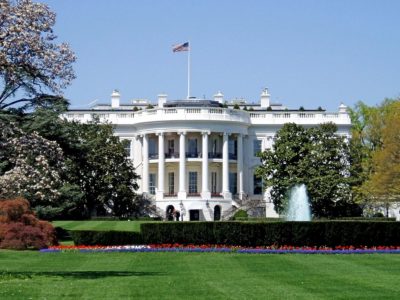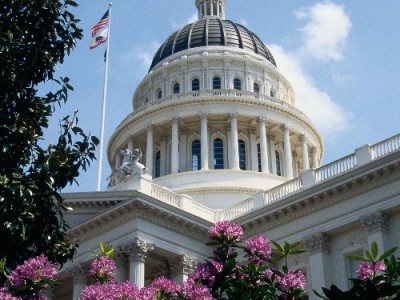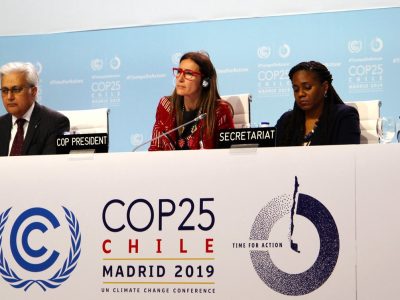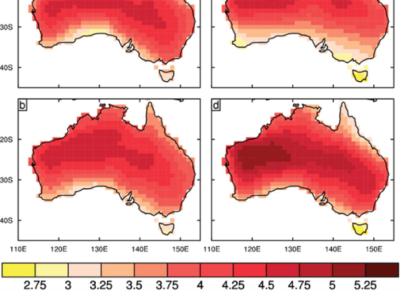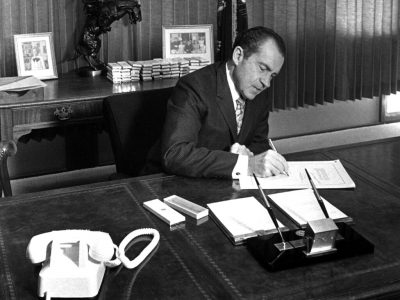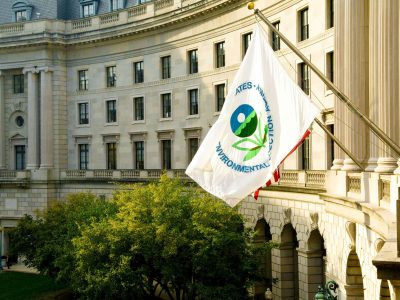Pride Goeth Before a Fall
Trump thinks he can tell courts how to interpret NEPA. He's wrong.
White House has just released its proposed revisions to the rules about environmental impact statements. The White House Council on Environmental Quality (CEQ) simply does not have the kind of power that it is trying to arrogate to itself. The proposal is marked by hubris about the government's ability to control how the courts apply the law. That hubris is evident in the proposal's effort to tell courts when lawsuits can be brought and what kind of remedies th...
CONTINUE READINGAndy and Dave Shoot the Breeze
An inside look at the Trump Administration.
[Open with a shot of Interior Secretary David Bernhardt at his desk with his phone to his ear. Ring tone in the background. Split screen after EPA Administrator Andrew Wheeler picks up.] Bernhardt: Hey Andy, how ya doin’? How’s life in the Inferior Department? Wheeler: Not so bad, Davey boy, not so bad. B: You in the clear on the Ukraine stuff? [Camera switches to Wheeler] W: Never even heard of the country until a couple of months ago. [chuc...
CONTINUE READINGCalifornia’s Major Housing Bill, Take 3: New Amendments Announced For Local Flexibility
Will Governor Newsom now put his weight behind Sen. Wiener's SB 50?
California State Senator Scott Wiener launched his third legislative attempt today at boosting California's housing supply. SB 50 aims to address the state's massive housing shortage, which has resulted in high home prices and rents, gentrification, displacement, inequality, homelessness, and a mass middle-class exodus to high-emission states like Texas and Arizona. Because this housing undersupply is caused primarily by restrictive local land use polici...
CONTINUE READINGWe Can’t Count on Cutting Greenhouse Gas Emissions to Prevent Dangerous Climate Change
Although reducing emissions remains essential, it is time to focus on additional responses
Last month, representatives of all countries gathered for their annual meeting to prevent climate change. Despite the motto “Time for Action,” the New York Times described it as “one of the worst outcomes in a quarter-century of climate negotiations.” Should we be surprised? Disappointed? Despairing? I believe that insufficient cuts in greenhouse gas emissions — which is the consistent outcome of nearly three-decades of such climate negotiations — is to be ex...
CONTINUE READINGA Paper Tiger?
Trump is proposing big changes to CEQ regs. But they may not matter.
The Trump Administration is trying to gut the current White House rules on environmental impact statements. Some people view this move as a death blow to an important environmental tool. Here's what Trump is trying to do and why it may not matter as much as people fear. As to what Trump & Co. are trying to do, the same statute that created environmental impact statements also created a White House agency called the Council on Environmental Quality (CEQ). CEQ has...
CONTINUE READINGDrawdown Marin
How Does a Local Government Reduce GHG Emissions?
In November, Australia’s deputy Prime Minister described those making the link between climate change and bush fires as “inner-city raving lunatics.” We can report some progress. His boss, Prime Minister Scott Morrison, now acknowledges the link (although he wants to maintain current policies). As climate impacts become more extreme and obvious, more jurisdictions, from cities and townships to states and nations want to take greater action more quickly. Bu...
CONTINUE READINGA Continent on Fire Ignores Climate Change
Conditions in Australia keep getting worse. The government offers platitudes.
Australia is remarkably exposed to climate change and remarkably unwilling to do much about it. Conditions keep getting worse. Yet climate policy in Australia has been treading water or backpedalling for years, as I discussed in an earlier post. Let's start with the temperature. The Guardian reports that in the year up to July 2019, Alice Springs (in the interior) had 55 days above 104 °F. On New Year’s Eve of 2018, it set a new record of 113 °F. In December 2...
CONTINUE READINGHappy Birthday, NEPA!
NEPA turns 50 today. Its passage was the beginning of modern environmental law.
Welcome to 2020. Before we start worrying about the year ahead, it's worth taking a look backward. Today marks the fiftieth anniversary of the passage of the National Environmental Policy Act, usually called NEPA for short. When he signed NEPA into law, President Nixon said: "It is particularly fitting that my first official act in the new decade is to approve the National Environmental Policy Act. ... I [am] convinced that the 1970s absolutely must be the years ...
CONTINUE READINGCommemorating the National Environmental Policy Act’s 50th Anniversary
Celebrating NEPA: America's Most Transformative, Overarching & Catalytic Environmental Law
On a snowy New Year's Day in 1970--50 years ago today--then-President Richard Nixon signed into law the National Environmental Policy Act. NEPA's passage marked the beginning of America's modern environmental law era. It was followed by Congressional passage of a series of other federal environmental laws over the next decade--major statutes that to this day collectively remain the foundation of federal environmental environmental law and policy in the United S...
CONTINUE READINGRevolt of the Captive Scientists
Trump’s Scientific Advisory Board Slams Proposed EPA Rules
Trump has appointed most of the members of EPA’s Scientific Advisory Board (SAB), many of them selected from industry. That effort to stack SAB in favor of deregulation apparently wasn't a complete success. In draft reports issued this week, the SAB scathingly criticized those efforts and even went so far as to give a nod to California’s alternative approach. Clean Water Act. The Trump Administration has proposed drastically reducing EPA’s jurisdiction over we...
CONTINUE READING



